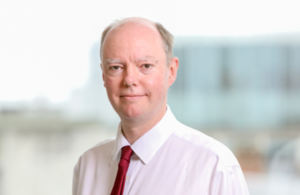Spacecraft launches to explore the Sun
The mission will take the most detailed images ever of the Sun and provide crucial information about how our star’s volatile activity affects its atmosphere. This knowledge will help improve predictions of space weather events, which can disrupt and damage satellites and infrastructure on Earth.
This has never been more important as the UK economy is increasingly reliant on space, with satellite services such as communications, navigation and Earth observation supporting wider industrial activities worth £300 billion.
Solar Orbiter will allow scientists to study our star in much more detail than previously possible and to observe specific features for longer periods than can be achieved by any spacecraft circling the Earth. The spacecraft’s orbit will also give unprecedented views towards the Sun’s poles.
The UK is at the heart of this European Space Agency (ESA) mission with UK industry winning £200 million worth of contracts and the UK Space Agency investing £20 million in the development and build of the instruments.
Business Secretary Andrea Leadsom said:
Solar storms could cause major disruptions to technologies including our energy grid, mobile phone signal and navigation systems.
This new mission demonstrates the UK’s leading role in the global space industry, while supporting our economy, creating jobs and helping establish the UK as a global science superpower.
Solar Orbiter will carry 10 state-of-the-art instruments. Remote sensing payloads will perform high-resolution imaging of the Sun’s atmosphere – the corona – as well as the solar disk. Other instruments will measure the solar wind and the solar magnetic fields in the vicinity of the spacecraft.
This will give us unprecedented insight into how the Sun works, and how we can better predict periods of stormy space weather, which are related to coronal mass ejections (CMEs) that the Sun throws towards Earth from time to time.
UK scientists were instrumental in proposing the Solar Orbiter mission to ESA. The UK Space Agency provided funding for four of the 10 scientific instruments on board. Imperial College London, UCL Mullard Space Science Laboratory and the Science and Technology Facilities Council’s RAL Space led international teams to design and build three instruments while UCL are major contributors to a fourth.
Chris Lee, Chief Scientist at the UK Space Agency, said:
I am incredibly excited by Solar Orbiter. It is the most important UK space science mission for a generation, both in terms of our leading industrial role on the satellite itself and our key academic roles on the science payload. It also contributes massively to the development of operational space weather forecasting as championed by the UK Met Office and so will have real impact for the UK public at large. Solar Orbiter truly is a “big beast” for our UK space community.
Solar Orbiter, which will take just under two years to reach its initial operational orbit, will follow in the footsteps of NASA’s Solar Parker Probe, which launched in 2018. The two missions will offer complementary perspectives of the Sun – with Parker Solar Probe travelling through the Sun’s atmosphere, while Solar Orbiter observes the surface and near environment.
Engineers at Airbus in Stevenage designed and built the spacecraft to withstand the scorching heat from the Sun that will hit one side, while the other is frozen as the orbit keeps it in shadow. It will face intense solar radiation that is 13 times more powerful than that in Earth’s orbit. The design is based on ESA’s BepiColombo mission to Mercury, the closest planet to the Sun, which launched in 2018 with significant involvement from UK engineers and scientists.
The UK’s space sector is going from strength to strength, employing around 42,000 people and carrying out world-class science while growing the economy. The UK continues to be a leading member of ESA, which is independent of the EU, having committed a record investment of £374 million per year in November 2019. This included £80 million on space safety and security for a mission in partnership with the US to protect infrastructure in space and on Earth from space weather and to help remove space debris.

